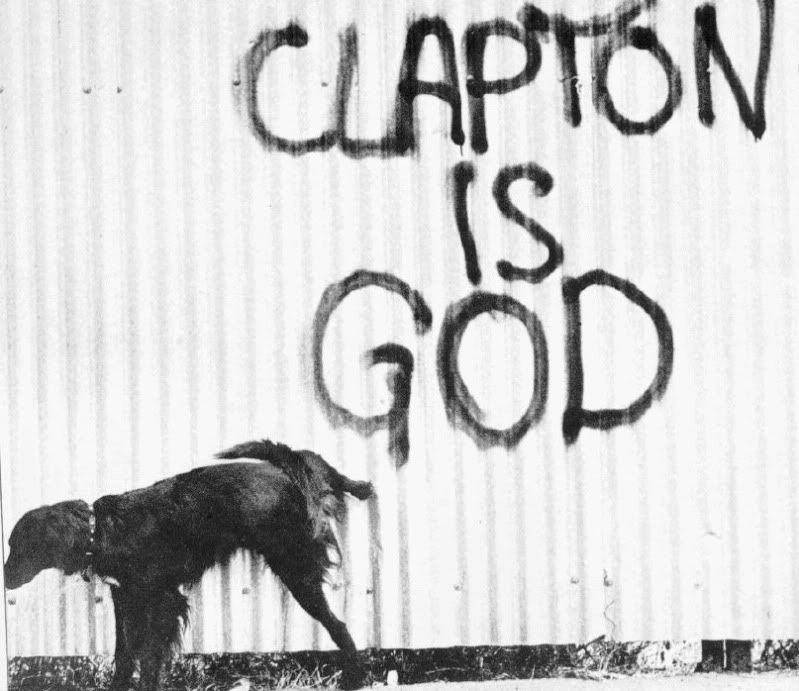Imagine
football with no end-zones. Imagine baseball with no home-plate. Imagine
basketball with no goals or golf with no holes. You’re left with people just
moving around, individually or in groups, passing or hitting or dribbling a
ball with no aim or purpose. They might have some fun. They might even put on a
good enough show to draw a crowd. But what they don’t have is a clearly-defined
goal. And, as a result, the fun and the show and the crowd
become the goal.
Such
absurd scenes painfully resemble the life of many churches. We move around,
individually or in groups, carrying one program or another up and down the
field, without any real idea of our God-given goal. Tragically, in this void,
we have turned to putting on a show and drawing a crowd as our purpose. It’s
easy just to blame the egos and worldliness of leaders and the consumerism of
parishioners. And I believe these have much to do with it.
But
I also think a major reason for the church’s aimless wandering is a lack of
pastoral theology and ecclesiology. We don’t really get what pastors and
churches are supposed to be about. What is this Body of which nothing less than the Son of God is the Head? The answers are astounding and daunting and the quest is mysterious and difficult, so much so that we shrink and turn away. Instead, for a couple of generations we have turned
to the business and entertainment worlds to try to find some answers. Bad idea. Utterly irrelevant, actually. I propose we set out on that daunting quest again, that we begin seeking God more earnestly regarding our purpose. What does
God say is our end-zone, our home-plate, our goal?
“Now
the main point in what we are saying is this: we have such a high priest, one
who is seated at the right hand of the throne of the Majesty in the heavens, a
minister in the sanctuary and the true tent that the Lord, and not any mortal,
has set up” (Heb. 8:1-2).
As
the earthly tabernacle was thought of as a model of the cosmos, with the Holy
Place modeling heaven, Jesus has now ascended to the true Holy Place, occupying
the true temple and not an inferior earthly copy. He is in the place of power
and authority…now.
Indeed,
“All authority in heaven and on earth has been given to me. Therefore, go and
make disciples of all nations…,” immersing those disciples in the reality of
the Triune God, teaching them to obey all that Jesus has commanded—to be
fully-devoted apprentices learning the way of the always-present Master (Mt.
28:18-20). It truly makes the mind boggle, but, "At the center of all this, Christ rules the church. The church, you see, is not peripheral to the world; the world is peripheral to the church. The church is Christ's body, in which he speaks and acts, by which he fills everything with his presence" (Eph. 1:20-23, MSG). Now we're getting somewhere!
For
it is not Christ alone who dwells in the Holy Place but, “Since, then, y’all
have been raised with Christ, set your hearts [wills] on things above, where
Christ is seated at the right hand of God. Set your minds on things above, not
on earthly things. For y’all died, and your
life is now hidden with Christ in God” (Col. 3:1-3).
Our
lives are also in that inner sanctuary--hidden with Christ in God--yet we live here and now. We aren’t
phantoms or figments. We live real, corporeal lives. But we live them from the place of Christ’s authority, from the place of sacrifice and worship,
from the Trinity’s reality…bringing
all of that to bear not only on our lives, but on the church; and not only on
the church, but in the larger world. This is the kingdom of heaven coming to
earth.
But
it starts in my heart and mind being set in that Holy Place—not day-dreaming
about some other place, but actually setting the will and the thoughts and,
thus, the life and actions of the body, in and from that reality. For it isn’t
some other place. It is as close as the Holy Spirit is—the Breath of the new
creation, the Agent of our living that life, the life that is “in Christ.” It
truly is, not just our getting into heaven, but God’s getting heaven into us,
that we are about.
And
the church, far more powerful than the individual’s experience, is all of this
happening corporately. As we come together, sharing in the divine life,
submitting to one another under Christ’s loving, very-present authority, we
bring that life “in Christ” to bear ever more strongly in our willing and
thinking and acting—not just individually but en masse. And as this happens, our worship in the shadow temple
becomes our worship in the inner Holy Place, God’s heavenly temple.
For, indeed, the church is the temple of God. Our lives hidden in Christ are
revealed to each other, and then to the groaning world, to the glory of God
alone!
What
does this look like? In a word: Jesus. We start by putting down that latest
"leadership" book, tearing down the tyranny of metrics, and immersing ourselves in
the Gospels. Pastors should do this individually, of course. But it should also
be done with boards/committees/teams. Take a year, meet monthly, and spend a
good chunk of the meeting time praying and studying the Gospel of Mark
together. Don’t get caught up in drama and letting ten minutes worth of
business take an hour. Learn the way of the Master…together! That's what we are about and what the world needs to see in us.
The
Holy Spirit guides us into all truth and wisdom. Jesus is the Light, the bright
revelation of our Father-God in whom we are constantly born anew. This is the
goal of our formation, the goal of the church, the goal of communities and
humanity, and ultimately the goal of all creation: to be so immersed in the life and reality of the Trinity that all
that’s left is face-to-face. Oh glorious Day! But until then, Oh glorious
goal!








